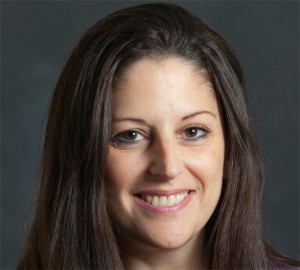Jun 28, 2017 By: yunews
 Dr. Tamar Avnet, associate professor of marketing at the Sy Syms School of Business, presented a paper co-authored with Anne-Laure Sellier, associate professor of marketing at HEC Paris, and Shiri Melumad, a PhD candidate in marketing at Columbia University, Graduate School of Business, at a recent conference at the Wharton School, “Consumer Response to the Evolving Retailing Landscape.”
Their presentation was titled “Are You Sure We Shared the Same Room? The Effect of Clock on Customers’ Online Review Generation and Consumption.”
The authors noted that the past decade has seen the creation of an enormous amount of user-generated content, such as online customer reviews and social media content. In their research, they examined how “clock-timers” (who schedule tasks based on the clock) and “event-timers” (who schedule based on the order of tasks) might differ in the types of review and ratings they gave online.
They hypothesized that a clock-timer will reflect more on efficiency of the service experience and other functional aspects of the experience (was the room ready on time, did the dishes arrive in a punctual manner, were the dishes reasonably priced) while an event-timer will reflect more on the affective components of the experience (were there flowers in the room, did it have a nice view, was the food well-presented, was the waiter friendly).
As a result, a clock-timer is expected to give a more positive review and a higher rating to an establishment that generally scores higher on efficiency and other functional elements, while an event-timer is expected to give a more positive review and a higher rating to an establishment that was generally scores higher on affective or hedonic dimensions.
Dr. Tamar Avnet, associate professor of marketing at the Sy Syms School of Business, presented a paper co-authored with Anne-Laure Sellier, associate professor of marketing at HEC Paris, and Shiri Melumad, a PhD candidate in marketing at Columbia University, Graduate School of Business, at a recent conference at the Wharton School, “Consumer Response to the Evolving Retailing Landscape.”
Their presentation was titled “Are You Sure We Shared the Same Room? The Effect of Clock on Customers’ Online Review Generation and Consumption.”
The authors noted that the past decade has seen the creation of an enormous amount of user-generated content, such as online customer reviews and social media content. In their research, they examined how “clock-timers” (who schedule tasks based on the clock) and “event-timers” (who schedule based on the order of tasks) might differ in the types of review and ratings they gave online.
They hypothesized that a clock-timer will reflect more on efficiency of the service experience and other functional aspects of the experience (was the room ready on time, did the dishes arrive in a punctual manner, were the dishes reasonably priced) while an event-timer will reflect more on the affective components of the experience (were there flowers in the room, did it have a nice view, was the food well-presented, was the waiter friendly).
As a result, a clock-timer is expected to give a more positive review and a higher rating to an establishment that generally scores higher on efficiency and other functional elements, while an event-timer is expected to give a more positive review and a higher rating to an establishment that was generally scores higher on affective or hedonic dimensions.